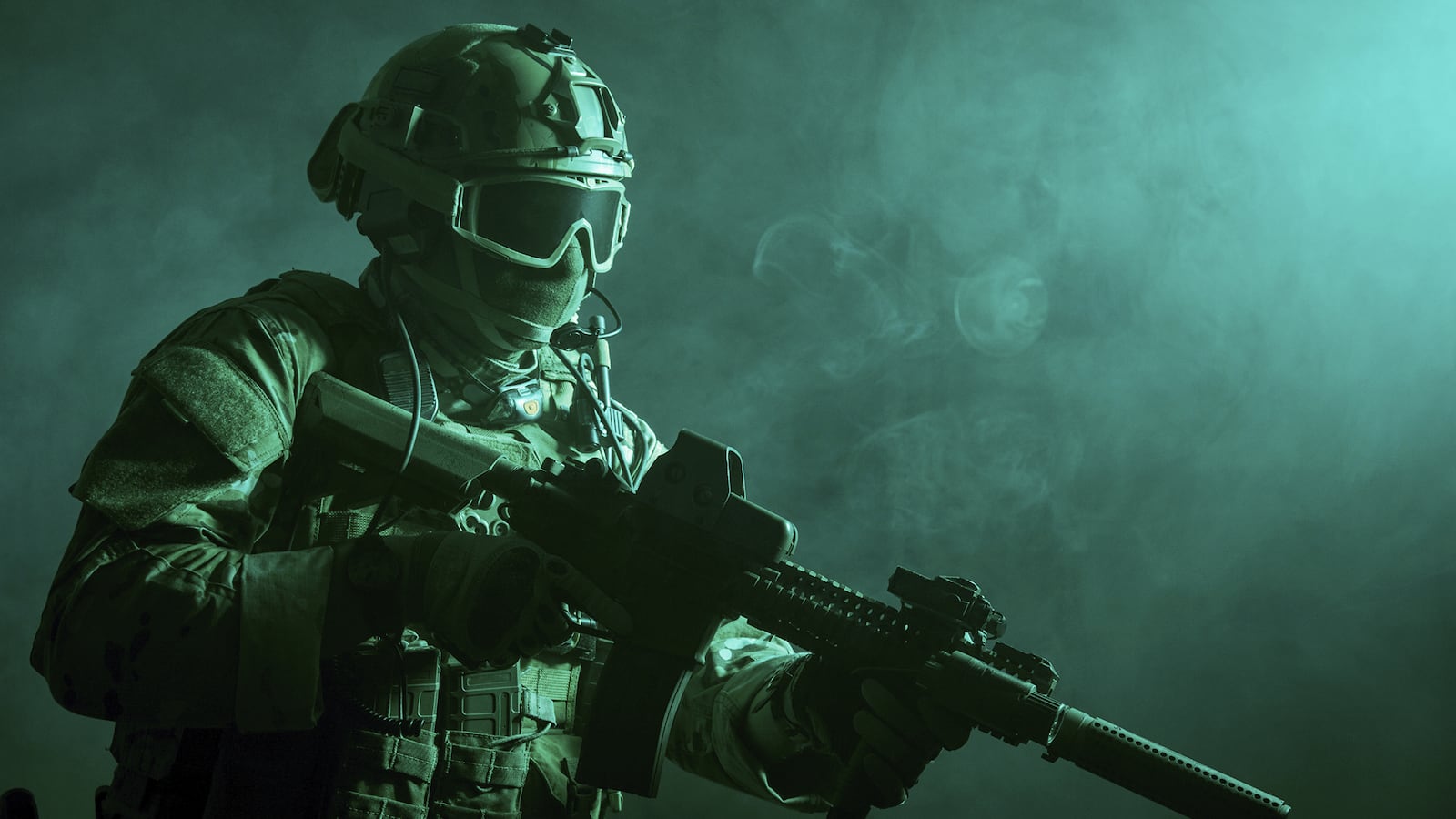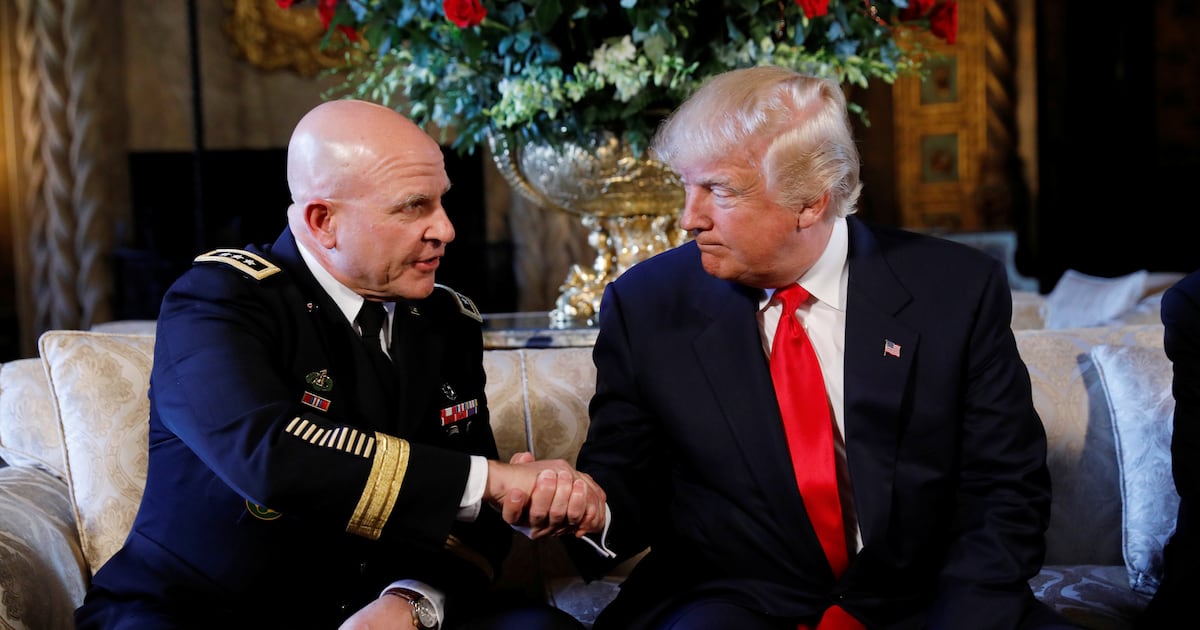Obama administration officials have chalked up a win with Friday night’s U.S. Army Delta Force strike deep into the Syrian terrain of the so-called Islamic State. But lawmakers are asking if the raid was worth it—something administration officials say they will only know after questioning two detainees and analyzing the data seized.
And critics say the raid will only count if it leads swiftly to more military victories, even as ISIS claims to have captured the key Iraqi Sunni city of Ramadi.
There were no U.S. casualties among the two dozen commandos who landed in eastern Syria, but the high-value militant they were after is dead—along with up to 40 other extremists, in the fight on the ground and an air strike just before the raid reported by the Syrian Observatory for Human Rights, a U.K.-based group.
It will take at least a week if not more to dig through the computers and other technical material seized in the raid at the lightly defended ISIS compound in Al Amr, in eastern Syria, U.S. officials said Sunday. The detainees taken from the raid—the target’s wife and a Yazidi slave—are being questioned by an elite FBI-led interagency team.
The loss of the target himself—Abu Sayyaf—is a disappointment, as administration officials say he was a longtime member of ISIS and a suspected confidante of its top leadership.
The veteran jihadist never figured prominently in the lists of ISIS leadership, but Abu Sayyaf was described by administration officials as ISIS’s chief financial officer, responsible for the oil smuggling that helps finance the group, so the material gathered from his compound could amount to a blueprint of how the corporate-like terrorist group is run and who helps pay its bills.
Abu Sayyaf’s wife, Umm Sayyaf (an Arabic honorific that means “Mother of Sayyaf”), was also captured, while an enslaved Yazidi woman was rescued by U.S. troops.
Both are being interrogated in Iraq by the FBI’s High-Value Detainee Interrogation Team, according to House Intelligence Committee ranking member Adam Schiff, D-Calif., and a senior administration official who spoke anonymously because he was not authorized to speak publicly.
“There’s a belief that she was active within ISIL and had responsibilities within ISIL apart from being a spouse of Abu Sayyaf,” Schiff told The Daily Beast on Sunday. ISIL is short for Islamic State of Iraq and the Levant, another name used to describe ISIS.
She may have had a possible “operational role,” he added.
“If the wife played a role in organization, she’ll be subject to prosecution by us or by Iraqi authorities,” he said.
The team has been deployed in the past to interview high-value al Qaeda suspects to get as much “actionable” intelligence as possible before turning the suspect over to an FBI team, which would then advise the detainee of his or her rights and then carry out separate questioning that could be used in a prosecution.
The White House and the FBI, however, refused to confirm the team had been deployed, referring questions to the Pentagon.
In an email on Sunday, Pentagon spokesman Col. Steve Warren said he “would not get into specifics, but as a general rule, we will always seek to get all the actionable intelligence and information we can from national security related suspects taken into our custody.”
The outcome of those interrogations together with whatever material is gleaned from the ISIS compound will determine whether such a raid is conducted again, said the senior administration official, who has been briefed on the operation.
“We need to probe whether the intelligence value was worth the extraordinary risks we took,” Schiff said Sunday. “We tend not to ask questions when things go well. This was heart of ISIS-held territory—had one of our people been captured, there is a risk of escalation because we would have done anything to get them back.”
“But it demonstrates that our intelligence is getting better and better in Syria,” he added. “We couldn’t have done this a year ago.”
“This was medium- to low-risk,” said the senior administration official in answer to Schiff’s questions. “Abu Sayyaf felt pretty comfortable,” and had taken few protective measures against capture, nor were there many ISIS forces in the immediate area able to respond in time to stop the raid, he said.
Syrian political activists say the reaction by ISIS commanders and fighters to the arrival of Delta Force on the ground was one of panic and confusion.
“Horror and fear prevails among fighters hours after the storm operation carried out by the international coalition forces,” anti-ISIS activists tweeted Saturday. A jittery ISIS imposed a widespread curfew following the raid.
The senior administration official said that was another key goal of the raid—to show ISIS that “we will find you, and kill you.”
But for the statement to have real effect, critics say follow-up raids are needed.
“My sense has long been that the U.S. could do quite a bit more to defeat ISIS,” says Jonathan Schanzer, at the Washington-based think tank, Foundation for the Defense of Democracies. “We are hindered by a reticence on the part of American decision makers to put boots on the ground. The success of this raid only serves to underscore this.”
Anti-ISIS activist Ahmad Abdulkader complained Sunday that the Americans have done little to exploit valuable intelligence available from more than 100 defectors from ISIS who have fled in the past few weeks, including two senior security operatives.
Abdulkader told The Daily Beast that activists with a network called Eye-on-the-Homeland smuggled them out of Raqqa, the so-called caliphate’s de facto capital.
One of the two security operatives was tasked with hunting down activists and opponents of ISIS. Another was the bodyguard of a significant player in the terror group. The activists have debriefed them, securing what their leader describes as “very important information.”
Yet Abdulkader said his group has not been contacted by intelligence officials from the U.S. or other Western powers in the coalition against ISIS.
“I could make another one hundred leave ISIS, but if I do so, who would be responsible for them, house and feed them?” he complained. “There is nowhere for them to go.”






